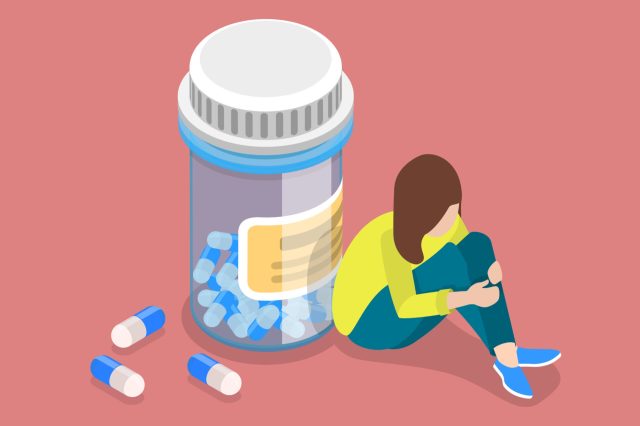Course Summary
Practice Level: Advanced
This course is part of SAMHSA’s Evidence-Based Resource Guide Series which is a comprehensive set of modules with resources to improve health outcomes for people at risk for, experiencing, or recovering from mental and/or substance use disorders. With a focus on programmatic design and evaluation it is designed for administrators and managers, with relevance to direct practice clinicians in the forms of best practices and evidence reviews, and information needed to improve referral selections.
Course Format
This course contains downloadable online lessons (PDF) and a practice test. When you’re ready, purchase the course by clicking the “Add To Cart” button. This will let you take the test, complete the course evaluation and receive your certificate for CE credits.
Learning Objectives
- Identify current approaches and challenges to treatment of youth and young adults with serious emotional disturbances (SED), mental illnesses, and co-occurring substance misuse or substance use disorders (SUD)
- Discuss current evidence on the effectiveness of treatments, including cognitive behavioral therapy (CBT), multidimensional family therapy (MDFT), and pharmacotherapy
- Select appropriate treatment practices and programs to address SED/SMI and co-occurring substance misuse or SUD in youth and young adults
- Describe current treatment programs that address SED/SMI and co-occurring substance misuse or SUD in youth and young adults
- Explain components of evaluation and quality improvement
Course Syllabus
- Issue Brief
- Overview of current approaches and challenges to addressing SED/SMI and co-occurring substance misuse or SUD among youth and young adults.
- What Research Tells Us
- Current evidence on effectiveness of the following treatment practices included in the guide to address SED/SMI and cooccurring substance misuse or SUD in youth and young adults: Cognitive behavioral therapy (CBT); Multidimensional family therapy (MDFT); and, Pharmacotherapy
- Guidance for Selecting and Implementing Evidence-based Practices
- Practical information to consider when selecting and implementing treatment practices and programs to address SED/SMI and co-occurring substance misuse or SUD in youth and young adults
- Examples of Treatment Programs
- Descriptions of programs that use treatment practices from Chapter 2 to address SED/SMI and co-occurring substance misuse or SUD in youth and young adults
- Resources for Evaluation and Quality Improvement
- Guidance and resources for implementing best practices, monitoring outcomes, and improving quality
Authors
SAMHSA
The Substance Abuse and Mental Health Services Administration (SAMHSA) is an agency within the U.S. Department of Health and Human Services. SAMHSA leads public health efforts that advance the behavioral health of the nation. On samhsa.gov SAMHSA states that its mission is to reduce the impact of substance abuse and mental illness on communities in America.
Accreditation Approval Statements
CE4Less.com is approved by the American Psychological Association to sponsor continuing education for psychologists. CE4Less.com maintains responsibility for this program and its content.
CE4Less.com, provider #1115, is approved as an ACE provider to offer social work continuing education by the Association of Social Work Boards (ASWB) Approved Continuing Education (ACE) program. Regulatory boards are the final authority on courses accepted for continuing education credit. ACE provider approval period: 08/08/21-08/08/24. Social workers completing this course receive 2 clinical continuing education credits.
CE4Less.com has been approved by NBCC as an Approved Continuing Education Provider, ACEP No. 6991. Programs that do not qualify for NBCC credit are clearly identified. CE4Less.com is solely responsible for all aspects of the programs.
Courses have been approved by CE4Less.com, as a NAADAC Approved Education Provider, for educational credits. NAADAC Provider #91345 CE4Less.com is responsible for all aspects of the programming.
We are committed to providing our learners with unbiased information. CE4Less never accepts commercial support and our authors have no significant financial or other conflicts of interest pertaining to the material.


